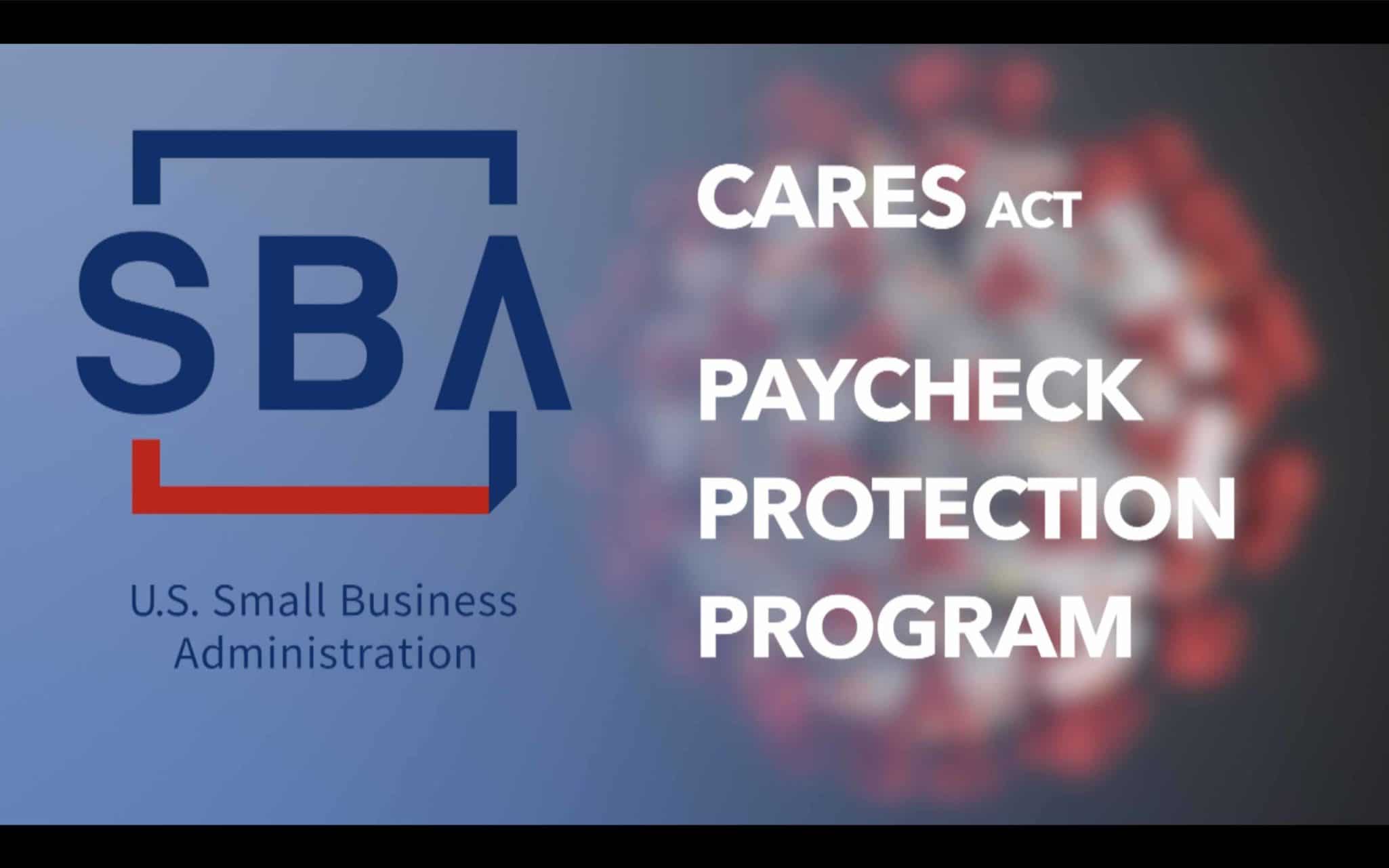
Building a Strong Brand: What Do Your Customers Say About YOU?
What do your customers/clients say about your or your company when you’re not around?
What do the employees say about you or your company when you’re not around?
Those things represent your external and internal brands, says brand guru Skot Waldron, and they can help or hurt you. Waldron spoke on June 30 to the Georgia Association of Business Brokers about building brand loyalty.
At the end of the day, we all crave loyalty, Waldron says. We want loyalty from our family members, loyalty from our customers, loyalty from employees, and loyalty from the companies we dedicate ourselves to. Your brand is typically associated with how you appear on the outside and how you communicate your value to the world. Skot pushes this idea by saying your brand starts on the inside and drives what’s on the outside.
Things that hurt your internal brand:
- Generic vision/mission/values that inspires no one.
- No self-awareness.
- Fear/manipulation
- Passive aggressiveness
- Misalignment
- You aren’t consistent in your communication.
You damage your external brand by:
- Treating marketing as an expense vs. an investment.
- Staying busy with day-to-day tactics instead of focusing on a strategy.
- Not differentiating your product or service.
- Not knowing how to clearly and confidently talk about your product or service.
- Being inconsistent and lacking a cohesive message
that resonates with people.
Skot recommends that entrepreneurs and small business people should ask trusted colleagues these questions: What five words would you use to
describe me/my business? What are my/our top 3 strengths? What are my/our top 3 weaknesses?
Listen to Skot’s presentation here.
Skot’s PPT Presentation “Why People Aren’t Loyal to Your Brand & What to Do About It,” is linked here:Why People Aren’t Loyal to Your Brand
For the past 18 years, Skot Waldron’s brand work for clients such as J.P. Morgan Chase, CDC, Georgia Tech, Royal Caribbean, Sesame Workshop, Chiquita, and The Coca-Cola Company has included both employee-centric and customer-centric projects.
He helps organizations communicate more effectively with their employees and customers with the goal of creating more alignment, consistency, and loyalty. Skot believes you have to be healthy on the inside (culture) in order to truly be healthy on the outside (brand and marketing). He helps with both.
In addition to running his own coaching and creative agency, Skot has been teaching brand development at the Miami Ad School in Atlanta. He has also traveled to different cities in the U.S. to conduct communication training and speaks about how the value of branding pertains to us as individuals, teams, families, and businesses.
The Georgia Association of Business Brokers, the state’s largest and most prominent association of professionals dedicated to the purchase and sale of businesses and franchises, is holding brief weekly meetings online during the pandemic. Business brokers, bankers, business attorneys and other professionals join the weekly calls to ask and answer questions about buying and selling a business during the pandemic. The GABB also maintains a listing service with hundreds of Georgia businesses for sale.
To join the GABB’s Tuesday meetings, please go to
https://us02web.zoom.us/j/95506520094?pwd=WXdtNjhQVmRSWWdDNk5nV2lHZnNKdz09
Meeting ID: 955 0652 0094
Password: 054703

Pandemic Prompts Closer Scrutiny of SBA Loans
If you’re trying to sell a business, expect bankers to scrutinize the deal more closely in the wake of the COVID-19 pandemic.
Ryan Stoll, an SBA Banker at Cadence Bank, N.A. specializing in Franchise, Business Acquisition and Real Estate Lending, spoke to the GABB’s guest on Tuesday, June 16, about SBA lending and the Paycheck Protection Program (PPP) program.
Cadence Bank, along with many others, is asking clients to get help from their CPA’s to gather the information they will need to apply for forgiveness through the PPP program.
The Paycheck Protection Program (PPP) is a loan designed to provide a direct incentive for small businesses to keep their workers on the payroll. New SBA guidelines have loosened forgiveness restrictions, according to Forbes, to make it easier for businesses to receive partial loan forgiveness.
Borrowers can qualify for partial loan forgiveness if less than 60% of the PPP loan is used for payroll, according to The Journal of Accountancy. The journal reported that a law signed June 5 lowered to 60% from 75% the minimum percentage of PPP funds borrowers have to spend on payroll costs to have the loans forgiven. But while the original PPP rules allowed for partial loan forgiveness under the 75% basement, the new bill passed by Congress had language that could be interpreted as saying that if the borrower did not spend at least 60% of the PPP funds on payroll costs, none of the loan would be forgiven.
“We fully anticipate the forgiveness process to take us into the first quarter of next year with many of our clients,” Stoll said. “We have 60 days to review the forgiveness application, and the SBA has 150 days to make a ruling on the forgiveness application. We’re going to be working on PPP deals into 2021.”
Cadence Bank funded just under 4,000 PPP loans worth about $1.2 billion to clients and non-clients.
In response to a question from GABB President Dean Burnette about how the PPP program will affect acquisition loans, Stoll said banks are going to be doing enhanced underwriting, more due to COVID-19 than the PPP. Loan officers are going to want to be assured that any business up for sale is able to open and do business.
Banks will want to know what precautions businesses have taken and “if there are projections provided on a deal, we need to know how COVID-19 was taken into account for the projections,” Stoll said.
“We need to have from our borrowers contingency plans for how they would operate if the economy is partially or fully shut down again,” Stoll suggested. Brokers representing sellers should have year over year statements to show the impact of the downtown. “We do expect that businesses were substantially impacted in the downturn.” But if a business can demonstrate a return to normal, “that has appeased my credit officers.
In larger transactions, credit officers will want more equity from the borrower and want the seller to hold more paper, Stoll said. Some in the industry think some service companies are over-leveraged at this time. “So we’re looking for more equity and a larger seller contribution on those types of transactions,” Stoll said. “I wouldn’t be surprised if you’re seeing banks coming back with a portion of the seller note or all of the seller note being on a payment standby for some period of time.”
But Cadence and other banks are still lending, although many bankers are warmer to essential services businesses than non-essential services businesses, he said.
“Expect us to be coming back with very firm, very final offers when it comes to the structure of the equity,” Stoll said. “There may be some negotiation with rates, but as far as equity goes, the credit officer will be very firm.”
The Georgia Association of Business Brokers, the state’s largest and most prominent association of professionals dedicated to the purchase and sale of businesses and franchises, is holding brief weekly meetings online during the pandemic. Business brokers, bankers, business attorneys and other professionals join the weekly calls to ask and answer questions about buying and selling a business during the pandemic.
To join the GABB’s Tuesday meetings, please go to
https://us02web.zoom.us/j/95506520094?pwd=WXdtNjhQVmRSWWdDNk5nV2lHZnNKdz09
Meeting ID: 955 0652 0094
Password: 054703

Dealing with COVID-19’s Economic Impact: Planning and Communication are Key

There are many things that you should be doing to deal with the COVID-19 pandemic. At the top of the list is to be proactive. Now is the time to be thinking about how best to position your business after the economy has returned to something near normal. Now is not the time for self-pity. In fact, not preparing for the relaunch of the economy will cost you.
In David Finkel’s recent Inc. article entitled, “10 Things Every Small-Business Owner Needs to Do to Deal with the Impact of COVID-19 on Their Business,” Finkel outlines the 10 key steps business owners should take immediately. Finkel is the author of 12 business books and CEO of Maui Mastermind business coaching company.
There is no way of knowing how long the COVID-19 fueled economic downturn will last, and that means time is of the essence. Business owners, regardless of their particular sector, need to prepare as though the economy could relaunch tomorrow.
Finkel’s 10 Things:
- Take steps to protect your staff and customers from getting sick.
- Tell your customers what safety steps you’re taking.
- Educate your staff on how to stay healthy at work and at home.
- Engage in scenarios planning to deal with how markets could change.
- Enlist vendors and suppliers for help. You should ask them to negotiate payment terms.
- Take steps to plan out your cash flow.
- Open a dialogue with your management team.
- Go on the offensive and look for opportunities.
- Get your team together and brainstorm.
- Be sure your key leaders communicate in a united fashion.
There are definitely some commonalities amongst these 10 important steps. You’ll notice that communication and education are at the heart of most of these points.
There is a lot of fear and uncertainty out there. More than almost any time in modern history now is the time to communicate. All business owners should be advised to communicate with their customers, clients, suppliers, staff, and management team in a clear fashion. Effective communication based around a consistent and logical message can help to reduce fear. The fear sections of the brain are driven by our primordial ancestors’ dread of the unknown lurking in the darkness. Part of being a good leader is to reduce those fears whenever possible.
Another common thread is planning, which includes looking for new opportunities. Whenever there is chaos and fear, there are also opportunities. You should be looking for those opportunities, whether it is improving your own business practices or looking for other companies to buy.
Good communication and planning can help you navigate these choppy waters. Planning for the recovery from COVID-19 pandemic could be the difference between staying in business and going out of business.
Copyright: Business Brokerage Press, Inc.
The post Dealing with COVID-19’s Economic Impact: Planning and Communication are Key appeared first on Deal Studio – Automate, accelerate and elevate your deal making.

Improving Your Telework Habits

It’s anything but business as usual in today’s online meeting environment. Employers should keep in mind that the dynamic between you and your employees may be different when you use video conferencing.
A“business-as-usual” approach to the COVID-19 situation can make an employer look both unnecessarily cold and out of touch with reality, opined Rajshree Agarwal, who is a professor of Strategy and Entrepreneurship, in an April 20th, 2020 Forbes article, “Three Keys to Engaged, Productive Telework Teams.”
How you use telework and video conferencing is, in part, about developing the correct balance. On one hand, you’ll want to acknowledge that the situation is serious and must be addressed. But on the other hand, you don’t want to dwell on the pandemic. After all, not effectively handling the work at hand could undermine your business and cause other problems for both you and your employees.
It is in everyone’s best interest to be smart, safe, and acknowledge the bizarreness of the current situation while striving to achieve business goals. The keyword here is “balance.” Agarwal states that “The combination of empathy and purpose unifies individuals, allowing team members to channel their efforts towards shared objectives and values. This is the best antidote for anxiety.”
From Agarwal’s perspective, there are three keys to making telework effective: communication, socialization, and flexibility. First, there has to be good communication. For example, people can’t simply ignore one another’s emails because they are working virtually. She points out that real-time meetings via Zoom or Skype can eliminate some communication issues, but not all.
The second factor to consider is socialization. As Agarwal points out “Engaged, productive teams also take time to socialize.” Working from home alters the typical modes and methods of socialization, but virtual interactions can be used to help people form and develop their social networks.
In short, socialization doesn’t have to end once telework begins. Used judiciously, socializing, and the bonds it creates between co-workers can still continue.
Agarwal’s third key is flexibility. Flexibility is critical, as all team members must adjust to what, for some, may be a fairly radical restructuring of their day-to-day work experience. Those who haven’t worked virtually before may find adjusting to be quite a challenge. Management should strive to be more flexible during telework caused by the COVID-19 pandemic. Trying to maintain the same top-down approach could prove to be problematic.
It goes without saying that telework presents challenges. However, the challenges it represents are not insurmountable. There are benefits to teleworking, and teams can use it to generate solutions that they might have not reached in the typical work environment.
Copyright: Business Brokerage Press
The post Improving Your Telework Habits appeared first on Deal Studio – Automate, accelerate and elevate your deal making.
Crisis Averted: 11 Steps to Help Your Business Survive and Thrive

Russ Hall, Action CoachExperienced business brokers know that there’s sometimes a gap between when a business owner wants to sell their business and actually having a business prepared to sell.
The Georgia Association of Business Brokers held its March 31 meeting online with more than 60 participants.
If you missed the meeting, you can view the recording here.
Business coach Russ Hall, our guest speaker, came to us using the Zoom virtual meeting platform. Mr. Hall offered advice on how small business owners can weather the current economic and health crisis. GABB affiliate and attorney Wendy Kraby talked about how loan closings are happening online, and SBA lenders discussed SBA loans available during the crisis and loan extension options.
The presentation from Russ’s excellent webinar, Crisis Averted,: 11 Steps To Help Your Business Survive and Thrive, is linked here: CRISIS AVERTED Webinar by Russ Hall for GABB
Since 2003, Mr. Hall has been a part of ActionCOACH, a global organization that helps the owners and teams of small businesses improve performance so that they can improve their lives. He spent his first seven years after university as a US Naval Aviator, and he piloted SH-3 Sea King anti-submarine warfare helicopters. He also spent 21 years with a Fortune 100 company in the Healthcare Technology sector, leading and managing national award-winning teams in Sales and Customer Service for most of that time. As a part of his development as a coach, he earned a Master’s in Industrial-Organizational Psychology from the University of Georgia.
Joining a Zoom Meeting
How do I join a Zoom meeting?
You can join a meeting by clicking the meeting link or going to join.zoom.us and entering in the meeting ID.
How do I join computer/device audio?
On most devices, you can join computer/device audio by clicking Join Audio, Join with Computer Audio, or Audio to access the audio settings.
Can I Use Bluetooth Headset?
Yes, as long as the Bluetooth device is compatible with the computer or mobile device that you are using.
Do I have to have a webcam to join on Zoom?
While you are not required to have a webcam to join a Zoom Meeting or Webinar, you will not be able to transmit video of yourself. You will continue to be able to listen and speak during the meeting, share your screen, and view the webcam video of other participants.
For more information about the GABB, contact GABB President Dean Burnette at dean@b3brokers.com or (912) 247-3209; or contact GABB Executive Director Diane Loupe at georgiabusinessbrokers@gmail.
